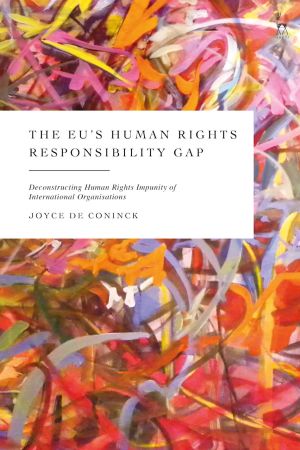
Can the EU be held legally responsible for contributions to unlawful human rights separately from its Member States? This is at the heart of this important new study.
Taking an innovative approach, rather than assess the EU's contribution to human rights violations, it asks if such conduct can be legally contested before a court of law. It takes a clear, two-part approach: firstly, it deconstructs and analyses the theoretical international and EU human rights responsibility regime. Secondly, the book applies this regime to four case studies looking at international border management. This allows it to establish a theory of 'relational human rights responsibility' in order to hold the EU responsible for its complicity in human rights harms.
Blending litigation, theory and rights analysis, this is a new approach to enforcing and protecting human rights.